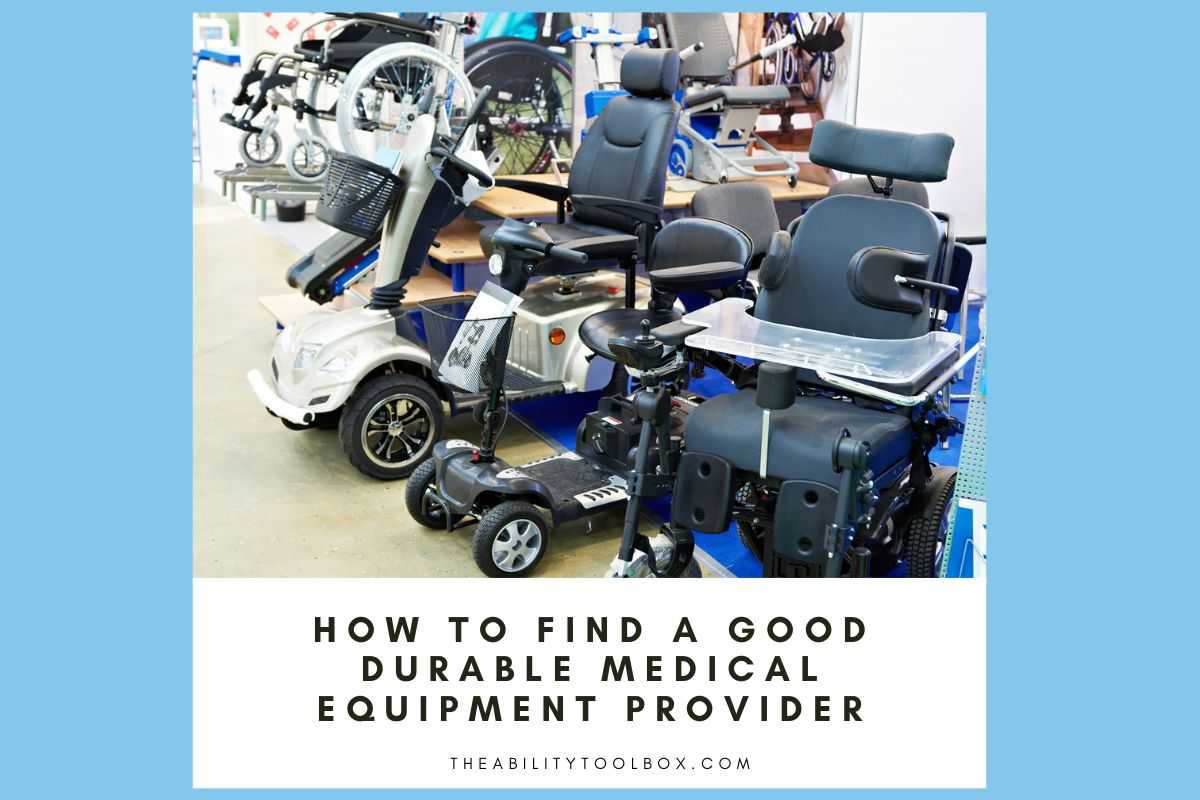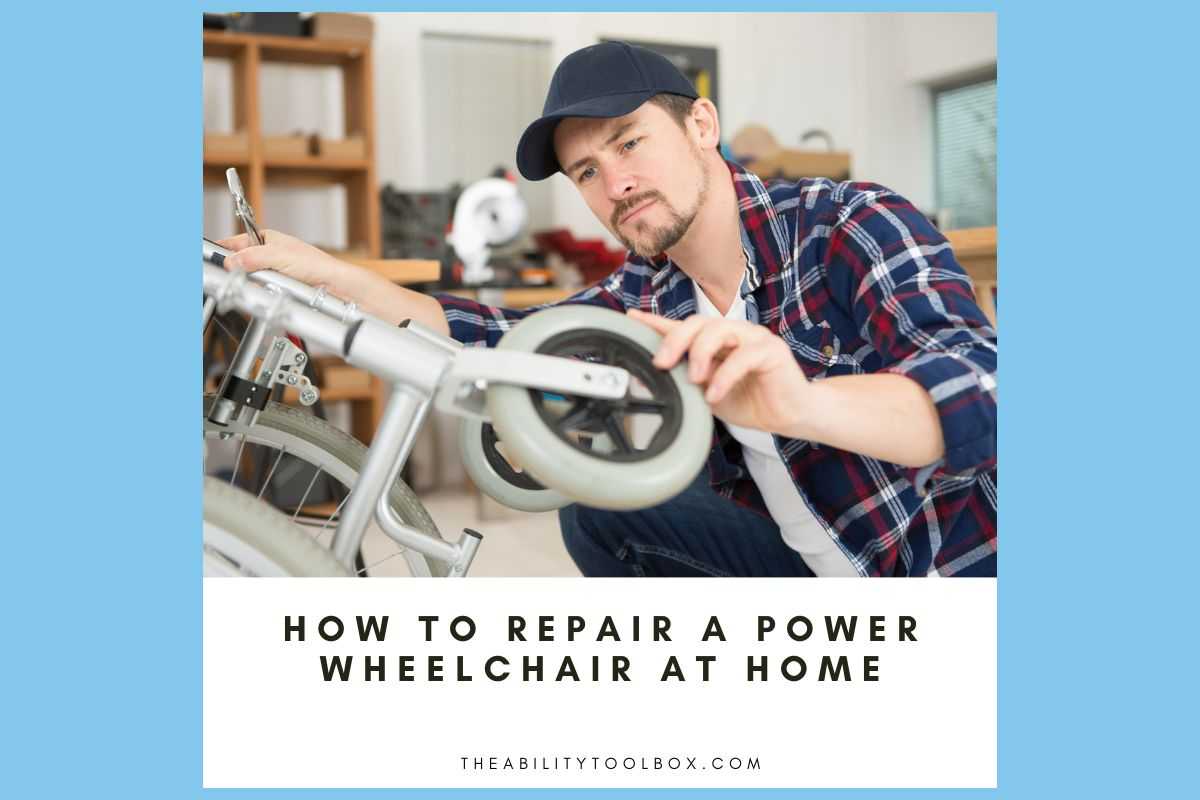
If you have a disability and need a wheelchair or other mobility device, finding the right durable medical equipment provider is critical to ensuring your safety, comfort, and independence.
As a lifelong wheelchair user, I have worked with several DME providers around the country, so I've learned a lot about what differentiates a great DME company from a not-so-good one. I've created this guide with the help of other peer experts with disabilities to help you find a company that will support you in getting the right mobility aid for you.
What is a durable medical equipment provider?
A durable medical equipment provider is a company that sells medical supplies and devices that are designed for long-term use. DME providers carry products ranging from shower chairs to knee braces to mobility devices such as canes, walkers, rollators, and wheelchairs. You can think of a DME provider as a car dealer for scooters and wheelchairs. But unlike car dealers, they have to deal with the nightmare that is the healthcare system in the United States.
Why Finding the Right DME Provider Matters
Buying a wheelchair is more complicated than shopping for a car. A DME company must help their customers select the right type of wheelchair and accessories such as a pressure relief seat cushion, back support, headrest, footrests, etc. They must then handle the convoluted process of getting insurance to pay for the device. It's a lot of complex, time-consuming work.
People with disabilities must work extensively with the company that will be ordering, adjusting, and repairing our devices. We need to have a strong and mutually respectful relationship with the DME business for things to go smoothly.
Tips for Finding a Reputable DME Company
If you are seeking your first wheelchair or other mobility device, here are some ways to find a quality DME provider or medical supply store.
Ask the disability community.
People with disabilities are experts on our own lives and are your best resource for finding DME providers. If you’re new to the disability community and don't know anyone locally, start by contacting your area's Center for Independent Living and ask if they can recommend a medical equipment company. If they can't, they may be able to refer you to a peer mentor who can help you connect with the community.
Read online reviews.
Do a Google search for “wheelchair sales near me” or “medical supplies near me” and read reviews. Pay special attention to how quickly they handle repairs, as a broken wheelchair can leave you trapped at home and even result in medical complications. As with all online reviews, take them with a grain of salt, as people are more likely to share negative experiences than positive ones.
Small businesses are often better.
There are so many DME companies across the United States, it’s difficult for us to make specific recommendations. But overall, we suggest looking for small businesses rather than large corporate entities that may not consider you a priority. Unfortunately, many small medical supply companies have been bought out by large conglomerates that have inflexible policies and don't want to take the time to serve people with complex needs. However, each city varies, so if people in your area like the local branch of a large company, it may be just fine.
Talk to a few DME companies before you commit.
If you have a DME business in mind, call them and talk to them about the wheelchair you want to get. If they seem negative, condescending, or unsupportive, look elsewhere. A good DME provider should be willing to advocate for you and help you get the best equipment for your needs, not the equipment they can get with minimum hassle and maximum profit.
Make sure they sell the device you need.
If you have a particular model or brand of wheelchair in mind, call the DME provider you’re interested in and find out if they are a dealer. If they’re not, they can probably direct you to another supplier who carries that brand.
Ask prospective DME providers about the wheelchair evaluation process.
If you find a great DME provider, they can also recommend a physical or occupational therapist who specializes in wheelchair evaluations. They typically work with a few therapists who understand the complexities of the process and know what’s required to get insurance approval.
Tips for Working with a DME Company
Once you've found a good durable medical equipment company, these tips can help you form a successful working relationship with them to get the mobility device(s) you need.
Learn as much as you can about the type of mobility device you need.
DME businesses are there to help you find the right mobility solutions for you, but you'll have a much better experience if you begin the process as an informed consumer.
Educate yourself about electric wheelchair groups or features of whichever type of mobility aid you're trying to obtain. The more complex a device you need, the more research you should do. If you need a lightweight manual wheelchair or a power wheelchair with advanced features, look into the various types and brands available so you can have an idea of what you want.
Take notes and keep records.
Write a list of features you need in a mobility device, plus questions to ask the DME company, and bring it to your appointment.
Keep records of appointments and calls. Note what was said by whom, expected timelines, and any other important information you might forget.
Develop your self-advocacy skills.
Check out our self-advocacy skills guide for tips.
Do you work with a great DME company? What do you like about them?
Share your experiences with our safe and supportive disability community in the comments.
Founder and Editor-in-Chief of The Ability Toolbox. I received my BA in English from Stanford University and MA in Clinical Psychology from Antioch University Los Angeles, and have worked in entertainment and health media for over 20 years. I also blog about traveling with a disability. As a wheelchair user with cerebral palsy, I am deeply committed to amplifying the voices of the disability community through writing and advocacy.








Start the discussion at community.theabilitytoolbox.com